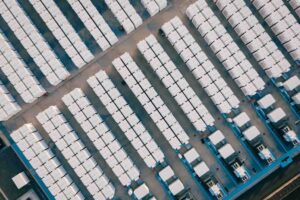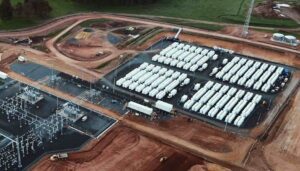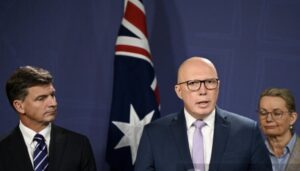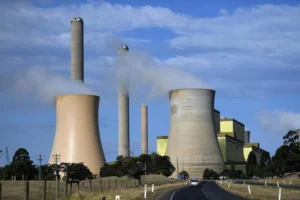The mining industry still quietly boasts about the slick advertising campaign they ran in 2011 and 2012 to kill off the super profits tax. Its $20-something million campaign saved the industry billions of dollars in potential taxes. It was probably the best return on investment the industry had ever made. And it threw the Australian Labor Party into a turmoil from which it was never able to recover.
Fast forward to 2014, and the Australian solar industry is trying to duplicate that effort. It has hired one of the key architects of the mining tax ad campaign, and although its budget ($1 million) pales in comparison to that of the big miners, it has similar ambitions to affect the outcome of the WA Senate re-run in April.
“The mining industry gave us a template for how it’s done,” says John Grimes, the head of the Australian Solar Council, which represents solar installers and suppliers and is organising the campaign. “This time, let’s do it for the good guys.”
Solar has been emerging as a potential political issue for several years. As RenewEconomy discussed way back in 2012, in what remains one of the most-read posts on the site, the emergence of zero money down financing (leases) gave the government the opportunity to deliver on its clean energy future message and claim cost of living reduction
But Labor was never able to get its head around it. The issue was conflated by the protests of the incumbent utilities, particularly the generators seeing demand for their output and their profits melt away; and the network operators and major retailers, who are seeing their business models challenged and potentially turned upside down.
The Abbott government, along with the conservative state governments that own some of these threatened utilities, has adopted an outright hostile attitude to the renewable energy industry, and has been cheered along and encouraged by a series of misleading and ill-informed lobbyists from right wing think tanks like the Institute of Public Affairs, lobby groups like the Australian Chamber of Commerce and Industry, and a bevy of conservative commentators.
The re-run of the WA Senate election offers an opportunity for the solar industry to test its mettle in the political climate for the first time. It’s as good a place to start as any. The outcome of the Senate re-run could be crucial in defining how easily the Abbott government could dilute, or even remove, the renewable energy target, as it appears to be threatening to do.
WA is also the living incarnation of the energy industry “death spiral”. It has just launched its own review of the electricity market, after admitting that the massive subsidies it pays each year to meet the difference between regulated retail prices and the cost of delivery of an overwhelmingly fossil-fuelled grid is not sustainable. It costs the cash-strapped government well over $500 million a year, or more than $400 a household.
WA home owners are getting a sense of this. When the WA government tried to crawl back – retrospectively – some feed-in tariffs, the response was so overwhelming that it dumped the idea within days. A “what-the-hell-are-you-doing” call from Coalition HQ in Canberra (it was the lead-up to the federal campaign) settled the deal, and underlined solar’s potential political impact.
The Australian Solar Council estimates that in WA, nearly 500,000 people have rooftop solar (more than 150,000 homes), and this could double in coming years. As the WA government-owned utility has admitted, the take-up of rooftop solar of between 2,000 and 2,600 houses a month – even after the feed-in tariffs had been wound back – has caught them by surprise.
Grimes says he has no doubt that solar could be a major election campaign issue in the west. “This time it really does matter,” he says. “The chorus of voices for the RET to be scaled back are growing. If we do nothing, then big changes are likely to occur.”
The Greens, of course, support the RET. Greens leader Christine Milne and incumbent Senator Scott Ludlam – who lost his seat and then regained it in a recount, before having to vacate it because of missing votes – made a point of opening their campaign at a solar warehouse in Perth on Monday.
Milne said any attempt to “wreck the RET”, would not just sabotage action to bring down global emissions, it would cost jobs (which the solar industry estimates at more than 2,000 in WA alone). “In this election, it is really important that people think about that,” Milne said. “The jobs of the future are in addressing global warming and in renewables. If you want cheaper bills and to attack global warming, best way to do that is to get right behind renewable energy industry.“
But re-electing Ludlam may not be enough to save the RET, or to “Save Solar”. So Grimes is trying to make this a “non-party” political campaign, and trying to secure support for maintaining the RET as is – including the 41,000GWh fixed target, rather than a vague “we support 20% renewables but want the current target reviewed” position of the Abbott government. It is a position that has created so much uncertainty that the large-scale industry, for instance, has ground to a halt, and also created funding problems for the emerging solar industry, in the 1MW-3MW category.
The solar industry says an average size system in WA can reduce an individual power bill by more than 65 per cent. Not only that, but it can deliver broader benefits by reducing wholesale electricity prices, and cutting peak load, thus deferring the need for new infrastructure. By 2015/16, Grimes says, small-scale solar will deliver a greater financial benefit to community than the cost of the small-scale schemes that have supported it.
“We are letting ordinary people tell their story,” Grimes says of the ad campaign. “Increasing number of power poor, people who get bill shock. If the federal government wants to make it harder for people to go solar, and they want to demonise the benefits of solar, then this will make it harder for struggling families. This is a massive saving, particularly for people on pension, workers, trying to make living.
“The government … should be making it easier to get solar, but there has been a massive campaign of demonisation and misinformation. Solar has been the knee-jerk, go-to demon of the industry. We want to expose that for lie that it is.
“In WA, the mining boom is over. A lot of people don’t think they benefited. But solar provides huge benefit. These are jobs that we should be transitioning to.”
If solar gains traction in this contest, it could become a national issue. Large-scale renewables have popular support, the polls tells us, but never to a point of influencing an election. Solar, with its latent appeal for self-consumption, sticking one in the eye of the utilities, doing a bit for the environment, and – most of all – saving money, is the one issue that can possibly do that. Already, more than 1.2 million homes in the country have rooftop solar – that’s up to five million people – and as many again are thinking about it.
“Everybody wants to do solar. All we are doing is bringing that to life,” Grimes says. “And what is bigger than the cost of living?”










